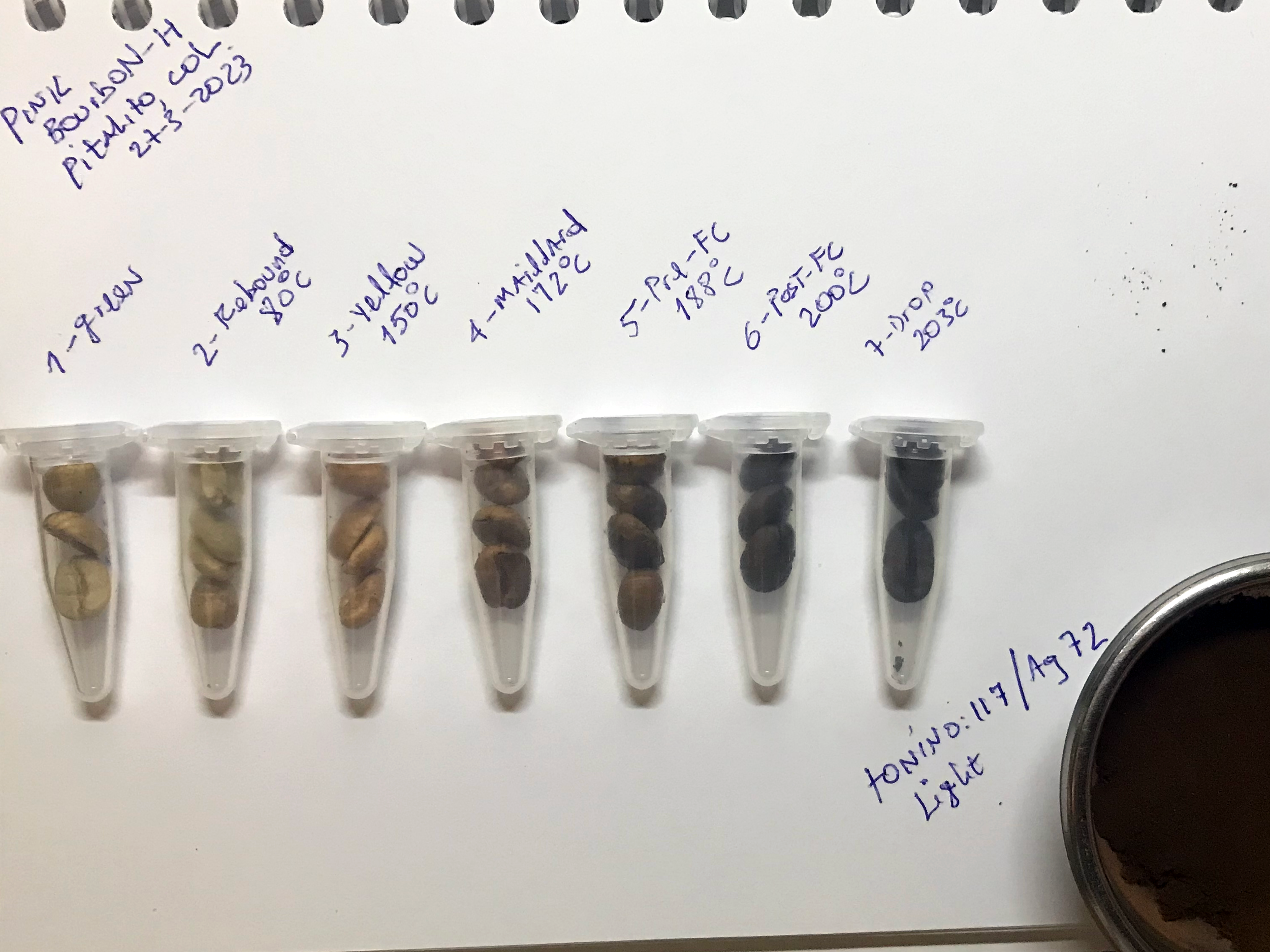DALTON (250g)
Origin: Colombia
Varieties: Tabi
Process: Natural
Roast degree: Medium
Origin: Colombia
Varieties: Tabi
Process: Natural
Roast degree: Medium
Origin: Colombia
Varieties: Tabi
Process: Natural
Roast degree: Medium
Terroir: Santa Rosa de Cabal, 1750 masl
Farm: La Riviera, Julio Madrid
Drying process: Sundried
John Dalton (1766-1844) was a British scientist with a background in Chemistry and Physics. Dalton's atomic theory laid the foundations of modern chemistry. His theory proposed that all matter is composed of atoms. Although we now know that atoms can be divided into subatomic particles such as electrons, protons and neutrons, Dalton's contribution was groundbreaking.
In applied Chemistry, Dalton is a unit of atomic mass. Indeed, atoms can be weighed using analytical platforms (e.g., mass spectrometer, MS) whereby one Dalton (Da) is approximately equal to the mass number (protons + neutrons) of the most abundant isotope. For example, helium (He), the predominant gas in our birthday balloons, has an atomic mass of ~ 4 Da as it contains 2 protons and 2 neutrons.
The mass of molecules is an important property in biochemistry. Caffeine (molecular formula: C8H10N4O2), for instance, has a molecular mass derived from summing all atomic masses: Carbon (12 Da) x8 + Hydrogen (1 Da) x10 + Oxygen (16 Da) x2 + Nitrogen (14 Da) x4 = 194.19 Da.
Modern MS techniques (Imaging Mass Spectrometry) now allow us to detect molecules based on their molecular mass and visualise their spatial distribution under the microscope. This impressive tool is portrayed in this artwork.
During the coffee roasting process, the molecules found within the seed cells undergo chemical transformations. For example, the aroma of green coffee contains around 250 volatile molecular species, whereas roasted coffee increases this number to more than 800, contributing to fragrance and aroma in coffee.
Colour changes in coffee beans evidence chemical reactions occurring throughout roasting stages.
Dalton is a single origin coffee produced in the Colombian 'eje cafetero' (coffee axis). Located in the village of Santa Rosa de Cabal, finca La Riviera is home to multiple varieties of high-quality coffees. Managed by Luis Madrid, 'La Riviera' spans around 35 hectares, housing tree varieties such as Gesha, Java, Sudan Rume, Moka, Catiope, Tabi, and many more. Finca 'La Riviera' has mastered innovative post-harvest processing methods such as cold press, culturing, and a refined Natural fermentation (i.e., double fermentation).
Our Dalton is made up of beans from the variety Tabi following a natural fermentation. Tabi was released in 2002 by Cenicafé as part of the group of rust-resistant hybrids. Tabi is a multi-line cross between Typica, Bourbon, and Timor hybrid. Tabi trees have a characteristic tall growth and require less fertiliser than dwarf trees. Tabi has high productivity and produces large seeds. Once Tabi berries are harvested these are fermented with the whole mucilage in a larger tank (23ºC x 24h, no additional water added) followed by a second fermentation step in water immersed tanks for additional 48h.
Tabi tree grown in Finca La Riviera, Risaralda.
Photo contributed by Luis F. Salgueiro from Café UBA.
Dalton is defined by a strong aromaticity. Its ripe fruit aroma can be perceived before and after brewing. In our experience, this Tabi from finca La Riviera has a unique cup quality marked by sweet fruits, lasting acidity, and white chocolate body. A real enjoyment to brew as a pour-over coffee.
To uncover the optimal flavour profile of Tabi and savour its notes, we recommend exploring the following brewing methods





